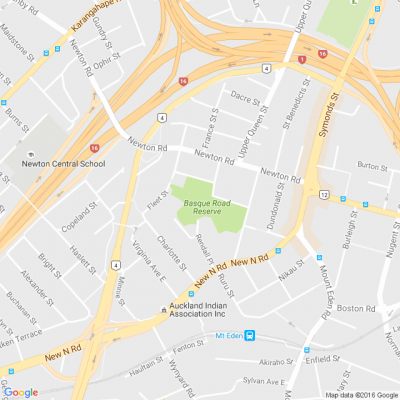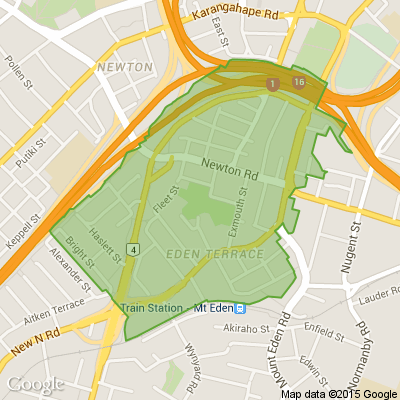Blessing scam
Three suspected scammers have been arrested trying to leave New Zealand with a large quantity of cash from their alleged victims.
A 50-year-old man and two women, 59 and 53, were arrested at Auckland International Airport yesterday by detectives from the Auckland City Financial Crime Unit. The trio, all Chinese nationals, were arrested just before they checked in for their flights to China.
They arrived in New Zealand on 10 October. Police alleged that two days later, they began operating a blessing scam – a form of fraud targeting immigrant or elderly communities who are deceived into believing they or their loved ones are cursed or in spiritual danger.
Police have jointly charged the three suspects with two counts of obtaining by deception. The charges relate to two victims – one who lost $14,500 and jewellery and another who lost $15,000.
The accused were remanded in custody following their arrest and are due to appear in the Auckland District Court today. Police are continuing to tally the money that has been recovered, but it is a substantial amount.
Perpetrators of blessing scams pose as healers or spiritual practitioners, offering to remove the curse or bring good fortune in exchange for money or valuable items. Victims are pressured to hand over cash or jewellery, typically instructed not to open the packages they receive, only to later discover that the contents are worthless.
While the Financial Crime Unit has identified two victims so far, it’s highly likely more people were targeted.
We urge anyone who may have fallen victim to this scam to contact us and encourage members of New Zealand’s Chinese community to talk with elderly relatives and make a report if they have been scammed.
If you have any information that could help our enquiries, please contact us at 105.police.govt.nz... or call 105.
In New Zealand, blessing scams have predominantly targeted Chinese communities, exploiting cultural beliefs in spiritual healing and curses. This type of fraud has been active in New Zealand for more than 15 years, with a notable rise in cases in Auckland in recent years.
Police have continued to raise awareness within at-risk communities, yet these fraudulent activities persist, often carried out by well-coordinated groups.
Police remain committed to protecting all members of the public from fraud and financial harm, and ensuring that everyone feels safe from deceptive practices.
We encourage the community to stay vigilant against scams and to remain cautious when approached by individuals offering unsolicited services.
If you suspect that you may have fallen victim to a scam, please contact Police via 105 immediately.
Chapter Book and Tea Shop Jan-Feb 2026 Book Catalogue
📚 JAN-FEB 2026 BOOK CATALOGUE 📚
Welcome back and best wishes for 2026! The new year sees the arrival of lots of goodies including Ilona Andrews’ BEAST BUSINESS (Hidden Legacy Series—Novella), Mary Balogh’s REMEMBER THAT DAY (Ravenswood Series), Christine Feehan’s DARK JOY (Dark Carpathian Series), Jayne Ann Krentz’s THE SHOP ON HIDDEN LANE (Set in Fogg Lake), Lauren Palphreyman’s THE NIGHT PRINCE (Wolf King Series), Leigh Rivers’ INSATIABLE (Edge of Darkness Series), J.D. Robb’s STOLEN IN DEATH (In Death Series), Nalini Singh’s SUCH A PERFECT FAMILY and more. Enjoy your reading!
NB. We have temporarily sold out of Mary Balogh’s “REMEMBER THAT DAY” and we expect it to be back in stock in around two weeks’ time.
Check out the catalogue at
chapter.co.nz...
Please see p.2 for the:
• Order link for signed copies of Nalini Singh’s SUCH A PERFECT FAMILY
• Pre-order link for signed copies of Nalini Singh’s ARCHANGEL’S ETERNITY
• Details of the Romance Writers of New Zealand Short Story Contest sponsored by Chapter (in April 2026).
• Details of the Auckland Romance Readers Book Club Monthly Meetings and Auckland Romance Readers Book Club Facebook Group.
For Orders, Enquiries or to check instore dates:
✉️ info@chapter.co.nz ☎️ 09-6232319 📱 021-635027
NB. Chapter’s trading hours are Tue–Sun 10–4. We are CLOSED on Mondays.
#ChapterBookandTeaShop #Tea #TeaShop #Books #Bookshop #RomanceBookshop #RomanceFictionSpecialist #BiMonthlyBookCatalogue

Poll: 🤖 What skills do you think give a CV the ultimate edge in a robot-filled workplace?
The Reserve Bank has shared some pretty blunt advice: there’s no such thing as a “safe” job anymore 🛟😑
Robots are stepping into repetitive roles in factories, plants and warehouses. AI is taking care of the admin tasks that once filled many mid-level office jobs.
We want to know: As the world evolves, what skills do you think give a CV the ultimate edge in a robot-filled workplace?
Want to read more? The Press has you covered!

-
52.7% Human-centred experience and communication
-
14.7% Critical thinking
-
29.6% Resilience and adaptability
-
2.9% Other - I will share below!
Brain Teaser of the Day 🧠✨ Can You Solve It? 🤔💬
Make a hearty dish. Take just half a minute. Add four parts of kestrel. Then just add one. What have you made?
(Trev from Silverdale kindly provided this head-scratcher ... thanks, Trev!)
Do you think you know the answer? Simply 'Like' this post and we'll post the answer in the comments below at 2pm on the day!
Want to stop seeing these in your newsfeed? No worries! Simply head here and click once on the Following button.









 Loading…
Loading…